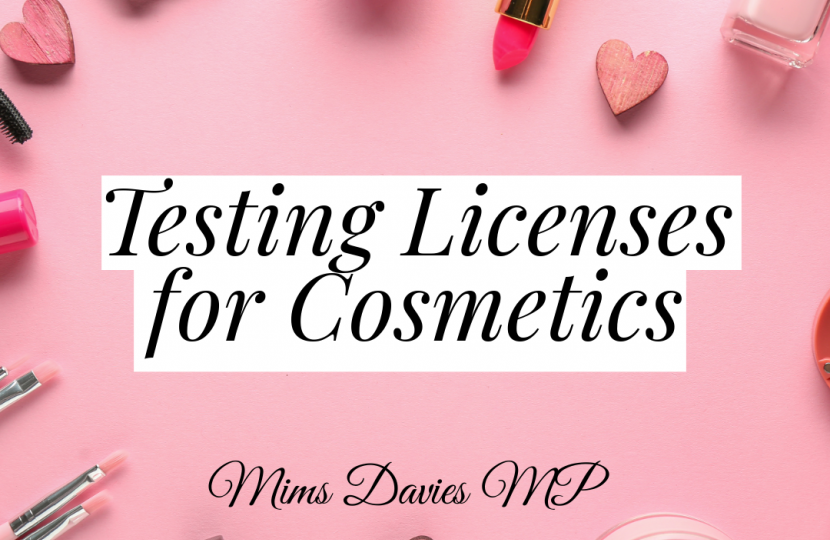
The Government has recognised the public concern around the testing on animals of chemicals used as ingredients in cosmetics and I was delighted to hear no new licences will now be granted for animal testing of chemicals that are exclusively intended to be used as ingredients in cosmetics products.
The regulatory framework around cosmetics has long required manufacturers to demonstrate that their products are safe for use by consumers, however, animal testing for this purpose was banned in the UK in 1998 and this ban remains in force.
Under chemicals regulations, manufacturers and importers must assess and stringently mitigate the hazards to human health and the environment of the chemicals they place on the market. This includes chemicals used as ingredients in cosmetics. In some cases, where there are no validated alternatives, this has in the past required testing on animals as a last resort.
These regulations are separate from, and have a different purpose to, the consumer cosmetics regulations, which is why it had been possible that a chemical used in cosmetics could have been required to be tested on animals. On that basis, a small number of time-limited licences were issued between 2019 and 2022.
However, a ban on new licences has now been introduced with immediate effect, and I am assured the Government is engaging urgently with the relevant firms to determine a path forward on the few remaining legacy licences.
The Government is also undertaking to review at pace the effective administration of the ban over the longer term. This will give due regard of the needs of the science industry, the need to ensure worker and environmental safety, and the need to protect animals from unnecessary harm.
In 2015, the Government implemented an additional ban on the testing of finished household products on animals as well as a qualified ban on household product ingredients. This is a clear statement of the UK’s commitment to animal welfare. Further, the Consumer Protection from Unfair Trading Regulations 2008 prevents deceptive commercial practices and should enable consumers to make informed choices about which products they want to buy. The Regulations also cover the omission of material information where goods are offered direct for sale to consumers and where the omission would be likely to affect the transactional decision of the average consumer. There are controls in place on advertising in the UK which requires all forms of advertising to be legal, decent, honest, truthful and prepared with a sense of responsibility to both consumer and society.
Finally, I understand that the Government is committed to ensuring that there is transparency in regard to animal testing, and that all protocols and guidelines are followed to protect the welfare of animals.




